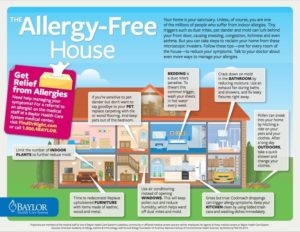Category Archives: Health & Wellness
The Deal with Detoxing
By: Rosemary Ayerle, CRNP
Detoxing is a popular health fad. Many individuals believe detox diets or liquid cleanses will clear their bodies of harmful toxins, help them lose weight, and even cure diseases. So, what’s the deal with detoxing?
The idea behind detoxing is that toxins (poisons) build up in your body due to poor diets and exposure to environmental factors, causing your body to become overwhelmed and leading to health issues such as headaches, fatigue, stomach trouble, skin rashes and heart disease. It is believed that by following a detox diet or performing a cleanse, accumulated toxins will be flushed out of your body, restoring a healthy balance. However, some detox diets and cleansing advocate use of herbs, supplements, and even colon cleansing with enemas, which can cause potential harmful side effects such as abdominal cramping, dehydration, and electrolyte imbalances.
- Certain liquid diets push out toxins. No detox diet can clean up toxins faster or more effectively than your liver, kidneys and colon. The best “cleansing strategy” for your body is to follow a healthy diet, avoid heavy alcohol intake, and get regular exercise. Smoking cessation is a must.
- Lots of water detoxes your body. Water does provide hydration and helps in ridding the body of toxins when you urinate. However, there’s no benefit to overdoing it. Aim for nine eight-ounce glasses of water per day to stay well-hydrated.
- Saunas sweat out toxins. A small amount of toxins can leave the body when you perspire, but very heavy sweating can impair your natural detox system. You do more detoxing in the bathroom than you ever could in a sauna.
How your body really handles toxins
Toxins are real. Some are natural byproducts of your body’s normal processes. Other toxins we are exposed to, such as pollution, pesticides, and various other environmental chemicals. Tobacco, excessive alcohol, and a diet high in processed foods, saturated fats, and sugar are also toxic to our bodies.
There is little to no evidence that detox diets or cleansers actually remove toxins from the body. Your body is much better at detoxing itself than any juice, special diet, or cleanser. The liver, kidneys, and colon do an excellent job of eliminating and filtering most ingested toxins. Therefore, you don’t need to detoxify because your body is constantly doing it for you when you go to the bathroom.
Support your body’s natural detox ability with healthy eating
It is important to help keep your body’s natural filtering system healthy, so it can continue doing its job of removing toxins. You can achieve this by eating a “clean diet” consisting of fresh fruits and vegetables, whole grains, lean proteins, low-fat dairy, nuts, olive oil, etc. Avoid processed foods that are typically high in saturated fats and high in sugar, as well as excessive alcohol intake.
Detox for weight loss and health issues?
If your goal is weight loss, a detox diet that restricts certain foods might help you drop a few pounds initially. However, since such a restricted diet is not sustainable, you will typically gain any weight lost back and then some. The best approach to weight loss is simply follow a healthy diet, such as the clean diet, and exercise on a regular basis.
As far as disease control, there is no research demonstrating detox diets improve blood pressure, reduce cholesterol, or prevent heart disease. In fact, detox diets may actually be dangerous for health conditions such as diabetes; any diet that severely restricts what you eat could lead to dangerously low blood sugar.
The bottom line on detoxing: Your body can handle toxins just fine. It doesn’t need complicated diets or expensive products to help it do its job.
 Rosemary Ayerle, Certified Registered Nurse Practitioner, received her Bachelor of Science in Nursing degree and her Master of Science in Nursing degree from the University Of Maryland School of Nursing. Ms. Ayerle is board certified by the American Nurses Credentialing Center in Adult Practice, and sees patients in the Bowie office.
Rosemary Ayerle, Certified Registered Nurse Practitioner, received her Bachelor of Science in Nursing degree and her Master of Science in Nursing degree from the University Of Maryland School of Nursing. Ms. Ayerle is board certified by the American Nurses Credentialing Center in Adult Practice, and sees patients in the Bowie office.
Eating to Prevent Cancer
By: Patricia Jett, M.D.
Can you prevent cancer by watching what you put in your mouth? Researchers are discovering that eating certain foods – and avoiding others – can reduce your risk of getting certain types of cancer.
‘Good’ and ‘bad’ foods
People who eat more fruits, veggies, whole grains and beans tend to get less cancer. That may be because those foods are high in antioxidants — chemicals that fight the cell damage that leads to cancer. Besides fresh produce, canned and frozen fruits and vegetables have many of the same important nutrients. Be mindful of canned goods, as they may contain more salt.
On the other hand, if you eat a lot of fat, sugar and refined carbs (like white bread), you’re more likely to gain weight and become obese. Obesity is linked to several types of cancer, so it’s important to keep your weight low. Try to limit your carb intake to < 30 grams per serving.
Are you at a healthy weight? Check your Body Mass Index (BMI).
Some healthy eating tips:
- Try to eat at least 2 1/2 cups of fruits and vegetables every day, and get a variety of types and colors. Be adventurous; try something new!
- Choose whole-grain products, such as breads, pastas and brown rice, instead of those with refined grains. Quinoa anyone?
- Avoid high-calorie processed foods and sugary beverages like soda, sweet tea, and juice-flavored drinks. Also watch those flavored waters – read your labels.
- Reduce your intake of processed meats such as bacon, sausage, lunch meats and hot dogs.
- Choose fish and poultry instead of red meat. If you eat red meat, choose lean cuts and smaller portions.
- Try to drink at least 64 oz. of water a day.
Watch out for alcohol
Drinking too much alcohol is also linked to several types of cancer. All types — beer, wine, and spirits — seem to raise your chances. Limit yourself to one drink a day (1.5 oz. liquor, 5 oz wine, or 12 oz beer) if you’re a woman and two drinks a day if you’re a man.
Besides healthy eating, physical activity is important for reducing your cancer risk. Learn more from the American Cancer Society.
 Dr. Patricia Jett is a Maryland Primary Care Physicians, LLC partner and practices in MPCP’s Annapolis office. She is certified by the American Board of Family Medicine. She received her medical degree from the University of Maryland School of Medicine and completed her residency program in Family Practice at Franklin Square Hospital Center.
Dr. Patricia Jett is a Maryland Primary Care Physicians, LLC partner and practices in MPCP’s Annapolis office. She is certified by the American Board of Family Medicine. She received her medical degree from the University of Maryland School of Medicine and completed her residency program in Family Practice at Franklin Square Hospital Center.
How to Fight Winter Allergies
By: Kimberlee Adkins, M.D.
You survived spring pollen and summer hay fever. Now that the weather has cooled off, you’re due a break from allergies, right?
Maybe not. There are no pollens during the winter, but you still have indoor allergens — things that can cause an allergic reaction. And since you spend more time indoors during the winter, you may be affected more by these allergens than at other times. The big four home allergens are:
- Dander, the dead skin flakes of household pets such as cats and dogs
- Dust mites, tiny creepy crawlies found in bedding, carpeting and upholstered furniture
- Mold spores: Mold grows in damp areas like basements and bathrooms
- Cockroach droppings: These icky critters can live − and poop − anywhere.
Winter allergy symptoms can be confused with cold symptoms: sneezing, wheezing and itchy, watery eyes. However, cold symptoms usually pass in a week or two, so if your symptoms persist, you may have winter allergies.
Allergies At Home
It may not be possible to get rid of winter allergies entirely, but you can reduce your exposure to allergens at home:
- Clean, dust, vacuum and mop regularly, using a vacuum with a high-efficiency particulate air (HEPA) filter. If you can, avoid wall-to-wall carpeting, which provides an ideal home for dust mites.
- Get a HEPA air filter to remove particles from the air.
- Install high-efficiency furnace filters. They capture 30 times more allergens. Also, make sure your furnace fan is always on.
- Wash bedding and pajamas weekly in hot water — at least 130 degrees — to kill dust mites. Use hypoallergenic cases for mattresses and pillows to keep dust mites trapped.
- Reduce dander by bathing your pets once a week. Also, keep them out of your bedroom.
- Remove mold with a bleach solution.
Courtesy Baylor Health Care System
Treating Winter Allergies
If you take steps to reduce allergens in your home, and still suffer from allergies, you have two options for treatment:
- Over-the-counter allergy medicines to relieve your symptoms. Antihistamines and decongestants can provide temporary relief. You might also try steroid nasal sprays.
- Ask your doctor whether you should see an allergist. Allergists can test you for allergies and offer treatments, such as shots or tablets, that can provide long-term relief.
Dr. Kimberlee Adkins is certified by the American Board of Internal Medicine and sees patients in MPCP’s Columbia office.
Don’t Let Stress Harm Your Health
I’m Doctor Sneha Sheth. I’m one of the board-certified family physicians here at Maryland Primary Care Physicians.
Did you know that stress is a normal part of life? In fact, in certain situations, it can save your life.
But, if stress becomes a constant companion, it can do serious harm to your health.
Stress is the body’s reaction to a demand or threat. Your body releases stress hormones that increase your heart rate, tense your muscles, and get you ready for action. This is your “fight or flight” response.
But when the stress becomes a constant state of being, it can cause real damage. It can lead to aches and pains, headaches, anxiety, depression, digestive issues, and even frequent illness due to a weakened immune system.
Many aspects of life can lead to chronic stress: Financial worries, job issues, relationship trouble. Even positive things can cause stress – like retirement, buying a house, or planning a wedding.
So, it’s important to identify and break the patterns of stress in our lives. It can take as little as 10 to 20 minutes a day to reset your body’s stress response.
Meditation can help calm your body and your spirit. Exercise or a short walk outdoors can help the body to release endorphins, which trigger positive feelings in your body. Be sure to get enough sleep. Even pausing to take a few slow and deep breaths can make a difference.
So, if you’re feeling that stress might be gaining the upper hand, talk to your doctor. We’ll work with you to help you break the patterns of stress in your life.
Tackling stress could be key to you feeling better and staying healthy.
 Dr. Sheth is certified by the American Board of Family Medicine. She cares for patients at MPCP’s Arundel Mills office.
Dr. Sheth is certified by the American Board of Family Medicine. She cares for patients at MPCP’s Arundel Mills office.





